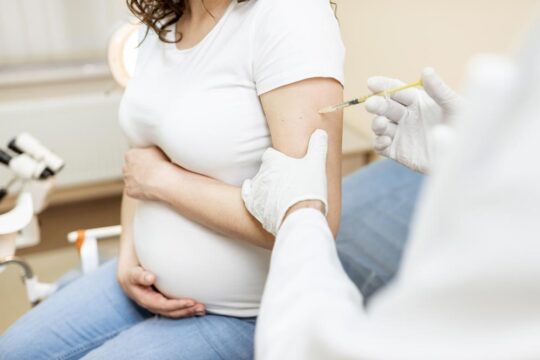Advertisment
Food supplements do little for malnourished children’s weight

by Gary Finnegan – World Health Matters (Belgium) –
Providing energy-dense food supplements to malnourished children in developing countries has limited effect on the weight of malnourished children, according to a new study led by a Belgian university.
In emergency situations, international aid organisations support affected populations by distributing food and sometimes by also providing children with nutritional supplements such as RUSF – Ready-to-Use Supplementary Food (RUSF), a lipid-based nutrient supplement.
However, this practise has been brought into question by a cluster randomised controlled trial by researchers from Belgium and France. The study, coordinated by Lieven Huybregts from Ghent University in Belgium, investigated the effect of a targeted daily dose of RUSF in children aged between 6 and 36 months in the city of Abeche, Chad.
All households included in the study received a general food aid parcel that included staple foods but eligible children in the intervention households were also given a daily RUSF ration.
The study found that giving energy-dense food supplements to young children in addition to a general food package in a country with food shortages did not reduce levels of wasting (low weight for height, a sign of acute under-nutrition) but slightly increased their height and haemoglobin levels.
The study was facilitated by the international non-governmental organisation Action Against Hunger-France (ACF-France) in collaboration with European researchers and was published in the PLOS Medicine.
“Adding child-targeted RUSF supplementation to a general food distribution resulted in increased haemoglobin status and linear growth, accompanied by a reduction in diarrhoea and fever episodes. However, we could not find clear evidence that adding RUSF to a household food ration distribution of staple foods was more effective in preventing acute malnutrition,” the authors said, suggesting that alternatives for preventing acute malnutrition should be explored.
Kathryn Dewey and Mary Arimond from the University of California, who were not involved in the study, said more research is needed to understand the potential for lipid-based supplements in promoting growth.
“High-quality programmatic studies can help provide urgently needed information on the cost and comparative cost effectiveness of different integrated strategies for filling nutrient gaps and promoting healthy growth,” they wrote in a commentary paper responding to the findings.





